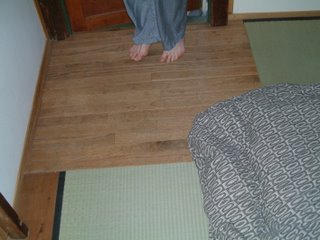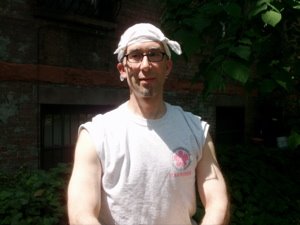If We're at Home in the Universe, Why Doesn't it Feel That Way?

As the Pet Shop Boys sang in "Young Offender," "You get what you want/ It hurts if you can't" (It rhymes if you're English). Wanting things is fundamental in human life, but somehow many of us grew up with the additional idea that the better we are at controlling various aspects of our world, the more likely it is that we'll get what we want. Irritatingly, for many of us what we want seems to include some sense of being naturally at home in the world, and not in a forced and manipulated way. And when we think about times we've felt that connection, was it really because we'd skillfully manipulated some situation into a state we'd been hoping for? Or did we just walk outside one evening and: Ah -- honeysuckle in the air, and a dog licking your hand. At a moment like that, nothing has to happen. You don't fit in because you've manipulated the world, your body, or your mind. You just naturally walk right in, and in a way it's a great accomplishment when nothing really happens: Good job, universe.
So why does it feel like our experience is not usually that way? Maybe it's because there's some stuff people just have to do to survive and reproduce, and there's no biological reason why that shouldn't cause us some distraction. From an evolutionary standpoint, everything we are as individuals comes out of what arose according to conditions, has survived despite conditions, and has reproduced as conditions have permitted. We are nothing but conditioned. And that includes not only our traits of walking on two feet and pursuing food and shelter, but also the way our emotions work, the way our thoughts unfold, and the way our minds perceive and structure time and space and social relations.
Emotional attachments, for example, could have evolved because those who held to close relationships through thick and thin did better in terms of continuing life, and if finding someone is a wonderful bodily feeling, while losing someone feels viscerally terrible, what our bodies do in the pursuit of joy will go along, in the aggregate at least, with survival and reproduction. Sometimes it will feel good and other times it will feel awful; that might seem important to us, but how we feel isn't what's been shaping evolution. In terms of thought, we might not care for the fears and obsessions that kept our ancestors from being eaten in the night (at least until after their children were raised), but they seem to be our uncomfortable birthright.
We might also see our perceptions of time and space and self, such as those perceptions have evolved, as simply given, and although there might be evolutionary reasons for us to see them as given, there might also simply be no particular reason NOT to see them as given. After all, what would some other view matter if it didn't help us survive and reproduce?
That question is a little like asking, if you're having a good time at Disneyland, why look behind the scenes? Why look for a way out? And the answer might be, well, like it or not, you can't stay. The park closes and you have to go, if not home, then at least somewhere else. And then the teacups are not going to spin and that nice Mouse who put his arm around your shoulder for a photo isn't going to be there for you. Because explanatory models (such as a theory of evolution) and discourse are well and good, but they all operate in our minds. Our minds as they have evolved (if you like), or our minds as they reflect some mysterious supernatural force (if you prefer), but either way we can't avoid the experience that everyone dies and dead people can't see or hear or smell or taste or touch or engage in thoughts in the way we know these activities, because they require organs that we know perish after someone dies.
Of course we can try to help ourselves feel at home by saying: there are supernatural forces out there that we can't understand, so just believe that you will go on in a recognizable form, one with a mysterious but deeply real connection to who you are now. Most religions say something like that.
But we can also say, who you are now is not what you think. Life and space and self are not what you think and time is not what you think. And especially, thinking is not what you think. Thinking is conditioned, arises based on causes and conditions, continues where prior intentions left off; that is, in Buddhist terms, thinking is Karmic. Our mental life is one of karmic consciousness, in which thoughts have their existence only in the causes and conditions that bring forth this moment. Which is to say, in everything in the universe. So our thoughts are real only to the exent that they are not separate from everything else. That is, they are (again in Buddhist jargon) empty. Thoughts do not reflect any reality other than the conditions that gave rise to them. We may not need any reality other than that to live and die in the world, but maybe it's good to see that we're not entirely trapped by our evolutionary/karmic habits of thinking, either. After all, why stop at getting by in the world if you still can't feel at home?
So there's a certain gratitude in recognizing that, while most of us have been busy surviving, a few beings, maybe more than a few, have been helping us see how we're not quite trapped the way we thought we were. Some of them might look like spiritual teachers, and some might look like dogs.

